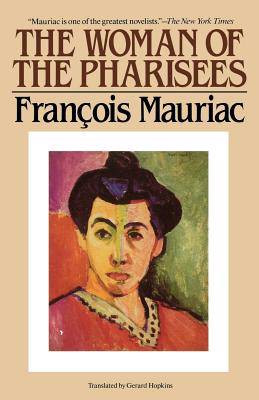
Door een staking bij bpost kan je online bestelling op dit moment iets langer onderweg zijn dan voorzien. Dringend iets nodig? Onze winkels ontvangen jou met open armen!
- Afhalen na 1 uur in een winkel met voorraad
- Gratis thuislevering in België vanaf € 30
- Ruim aanbod met 7 miljoen producten
Door een staking bij bpost kan je online bestelling op dit moment iets langer onderweg zijn dan voorzien. Dringend iets nodig? Onze winkels ontvangen jou met open armen!
- Afhalen na 1 uur in een winkel met voorraad
- Gratis thuislevering in België vanaf € 30
- Ruim aanbod met 7 miljoen producten
Zoeken
Omschrijving
Book jacket/back: Francois Mauriac--who won the Nobel Prize for Literature in 1952--is famous for his subtle character portraits of the French rural classes and for depicting their struggles, aspirations and traditions. The Woman of the Pharisees--one of Mauriac's most accomplished novels--is a penetrating evocation of the moral and religious values of a Bordeaux community. In Brigitte, we see how the ideals of love and companionship are stifled in the presence of a self-righteous woman whose austere religious principals lead her to interfere--disasterously--in the lives of others. One by one the unwitting victims fall prey to the bleakness of her "perfection." A conscientious schoolteacher, a saintly priest, her husband and stepdaughter and an innocent schoolboy are all confronted with tragedy and upheaval. But the author's extraordinary gift for psychological insight goes on to show how redeeeming features inevitably surface from disaster. The unfolding drama is seen through the discerning eye of a young Louis--Brigitte's stepson--whose point of view is skillfully blended into the mature and understanding adult he later becomes.
Specificaties
Betrokkenen
- Auteur(s):
- Uitgeverij:
Inhoud
- Aantal bladzijden:
- 256
- Taal:
- Engels
Eigenschappen
- Productcode (EAN):
- 9780881843712
- Verschijningsdatum:
- 27/01/1993
- Uitvoering:
- Paperback
- Formaat:
- Trade paperback (VS)
- Afmetingen:
- 141 mm x 216 mm
- Gewicht:
- 335 g

Alleen bij Standaard Boekhandel
+ 67 punten op je klantenkaart van Standaard Boekhandel
Beoordelingen
We publiceren alleen reviews die voldoen aan de voorwaarden voor reviews. Bekijk onze voorwaarden voor reviews.











